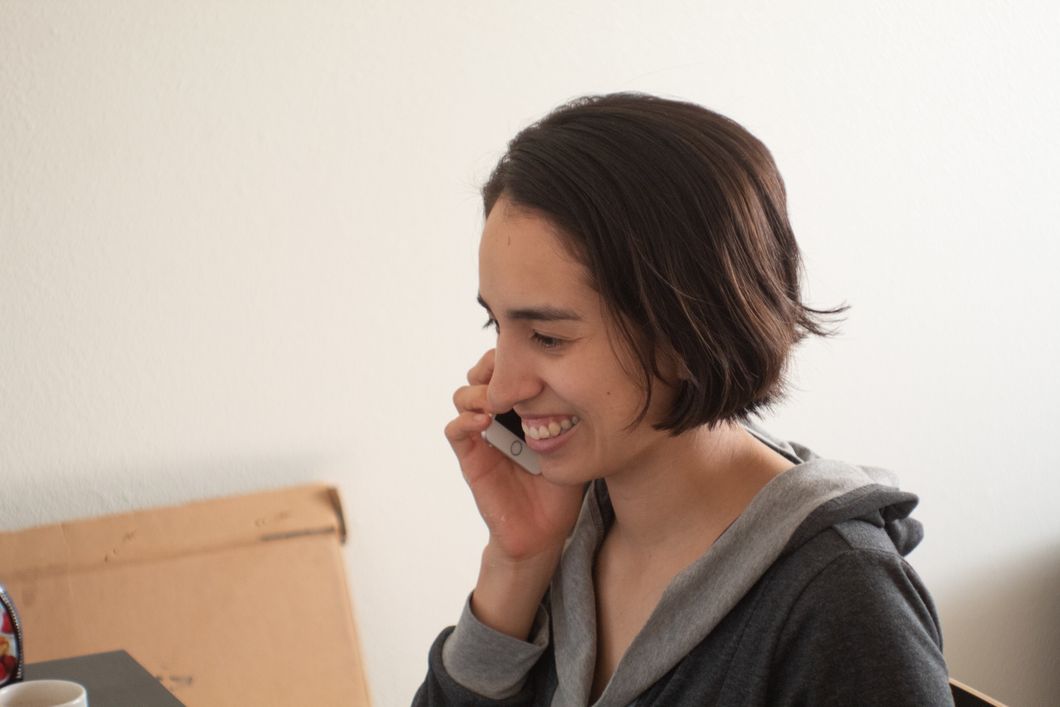The pandemic depression hit us all hard, especially for me since the home I was forced to retreat to isn't a happy one. My family dynamic has been troubled for years, and keeping everyone in the house together only exasperated existing problems. Being around certain family members was so draining to me. I had no motivation to be me or do me things. All the stories I'd heard of family bonding and togetherness during the pandemic were so foreign to me. I had no motivation to log on to my online classes or participate in any online activities that were meant to compensate for canceled, in-person events. I hadn't seen my friends, my boyfriend, or any members of my extended family in months. I was working remotely, so I had no reason to go outside.
Depression wasn't a new problem for me, but I was reaching a new low.
Before I had to vacate campus housing, I was toying around with the idea of seeing a psychiatrist. I've been seeing my therapist, a psychologist, for almost two years, and she was great. She keeps me grounded and shows me the tools I already have to maintain a rational, calm mindset. But something was missing. Even though I knew what was healthy behavior, I had trouble doing the thing. The past semester was stressful, and I was frequently stressed and too overwhelmed to do things I enjoyed. I didn't think I was depressed or anxious, but I knew I had depressive and anxious tendencies that were hard to shake. I knew medicine wouldn't be a cure-all. In fact, I had learned in one of my psychology classes the most effective form of therapy for depression was a combination of talk therapy and medication. Maybe I just needed to try harder in regular therapy. Maybe I wouldn't even need meds. Still, I wanted to rule out the possibility.
Now, all I had to do was find a therapist.
I had started seeking out a potential psychiatrist with the help of the student health center, but then covid complicated things. My housing status was initially in limbo, so I didn't know if I should find someone near my school or near my parent's house. Once I moved back in with my parents, we were at the height of the pandemic, and everyone was scared to go to any sort of doctor's office. Thankfully, I found someone practicing near me who was currently primarily practicing through the means of telemedicine.
My psychiatrist was actually excited by the pandemic because telemedicine allowed him to see more patients.
The first session was familiar enough territory. My psychiatrist basically asked me what my story was and why I was seeking his help. I went through all the issues I'd had growing up, ranging from family troubles to self-esteem issues. While I admitted that the current pandemic probably wasn't helping, seeking psychiatric help was something I had decided I would do before COVID-19 was a problem. My psychiatrist came to the conclusion that I was probably suffering from persistent depressive disorder, and it could have been situationally to blame. He said that medicine could help me calm down and feel better, but I probably wouldn't need to be dependent on them all my life.
Seeing a psychiatrist is different from a psychologist. Sure, I could talk to my psychiatrist about my problems like I could with my current therapist, but instead of following up with advice on how I could have calmly reassessed a situation or validating my frustrations, his solution would be a given medicinal treatment.
It was a lot of trial and error.
I want to stress that my individual experience with certain antidepressants is not a definitive assessment of how they will be like for everyone.
Scientists actually have a very limited understanding of how exactly antidepressants work. Promising results are usually demonstrated in lab animals like rats, but they won't always translate as well in humans. The first antidepressant I tried was bupropion. I lasted about a week. Soon after taking bupropion, my heart rate has increased substantially…up to 100bpm! At rest! I felt like I was dying. I guess it gave me too much of a shove to do things.
Next, I was on fluoxetine. The misconception people have about antidepressants is that they reverse any feelings of sadness and replace them with joy. That's not quite it (at least in my case). I felt a lot calmer on fluoxetine, but instead of muting any negative feelings I had, it muted all my feelings. I wasn't feeling as intensely as I'm used to, which was distressing for me. I am a very excitable and passionate person. Silencing that part of me only made me feel less like me. I expressed my concerns to my psychiatrist, and the solution was to decrease my dose of fluoxetine. This did help, but I would still have days when I'd find myself feeling numb, as I was home a lot with nothing to do.
It wasn't until I got back to school where I've been busy with a number of different things that I started to really feel like me again.
















